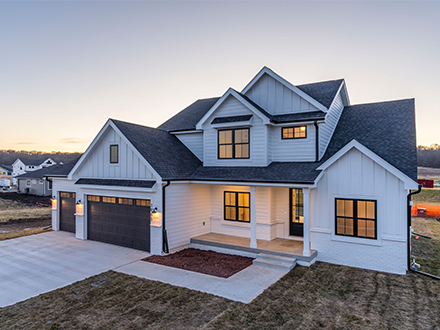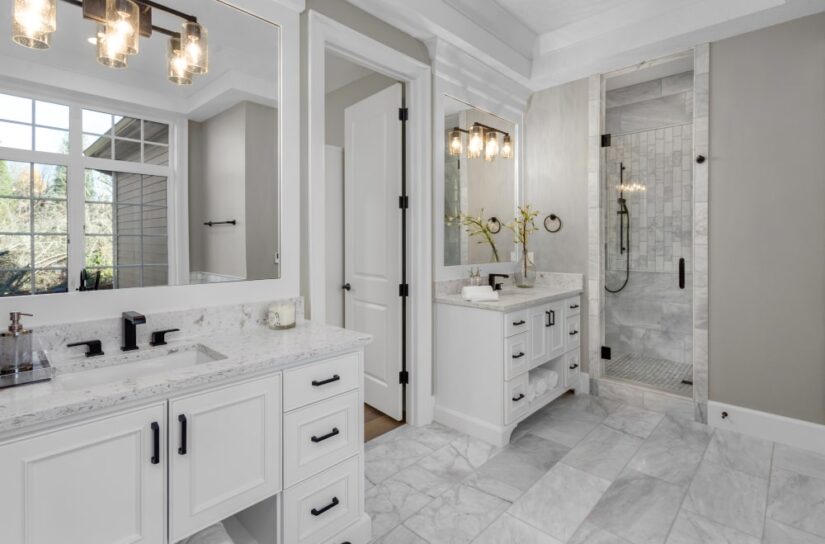Homeownership offers the exciting opportunity to shape your living space according to your evolving needs. When it comes to protecting your investment, top home insurance providers offer peace of mind and security. Whether you’re updating aesthetics or expanding living areas, it’s essential to safeguard your home with the right coverage. This comprehensive guide will walk you through your choices as a homeowner: renovation, remodeling, or adding an Accessory Dwelling Unit (ADU). Each option has its unique benefits and considerations, helping you make an informed decision about how to transform your home. As you embark on this journey of enhancing your living space, you’ll also discover insights on how to increase home value, ensuring that your investments contribute not only to your immediate satisfaction but also to the long-term worth of your property.
Assessing Your Home Improvement Needs
Before diving into the specific options of renovation, remodeling, or adding an ADU, it’s crucial to assess your home improvement needs and objectives. Consider the following factors:
- Space Requirements: Determine whether you need more space, improved functionality, or both. Is it about expanding your living area, updating your kitchen, or adding a separate dwelling unit?
- Budget: Establish a realistic budget for your project, taking into account not only construction costs but also design, permits, and potential unexpected expenses.
- Timeframe: Consider your desired timeline for the project. Some options may require more time for planning, design, and construction than others.
- Resale Value: Think about how your chosen project may affect the resale value of your home. Will it increase or decrease the marketability of your property?
- Lifestyle Goals: Consider your long-term lifestyle goals and how your home improvements align with them. Do you plan to stay in your home for years to come, or are you preparing for a potential sale?
Renovation: Refreshing Your Existing Space
Renovation involves updating and improving specific areas of your home without significant structural changes. It’s an excellent choice for homeowners who want to refresh their space without undergoing a complete transformation.
Types of Home Renovations
Renovation can encompass various types, including:
- Kitchen Renovation: Updating cabinets, countertops, appliances, and fixtures to enhance functionality and aesthetics.
- Bathroom Renovation: Refreshing bathroom features, such as sinks, tubs, showers, and flooring, to create a more comfortable and stylish space is an exciting venture for any homeowner. As you embark on this journey to redefine your bathroom aesthetics, consider enlisting the expertise of a team of experienced designers. Their skillful guidance can play a pivotal role in transforming your vision into a reality, ensuring that the updated features not only enhance comfort and style but also harmonize seamlessly with your overall design preferences. With the assistance of a seasoned design team, your bathroom renovation becomes a collaborative and satisfying process, resulting in a space that exudes both functionality and aesthetic appeal.
- Basement or Attic Conversion: Transforming underutilized spaces into functional living areas like bedrooms, home offices, or entertainment rooms.
- Interior Updates: Making cosmetic changes like painting, flooring replacement, or adding crown molding to enhance your home’s overall appeal.
Benefits of Renovation
Renovation offers several advantages:
- Cost-Effective: Renovation projects typically have lower costs compared to major remodels or ADU additions.
- Improved Aesthetics: Refreshing the look and feel of your home can boost its visual appeal and increase its market value.
- Quick Turnaround: Renovations often have shorter completion times, allowing you to enjoy the updated space sooner.
- Enhanced Functionality: Renovations can improve the functionality of specific areas, making them more practical for your daily needs.
Considerations for Renovation
Before embarking on a renovation project, consider these factors:
- Scope: Define the scope of your renovation project clearly to avoid unexpected changes and costs.
- Permits: Depending on the extent of your renovation, you may need permits from your local municipality. Check with your local authorities for specific requirements.
- Design: Invest time in thoughtful design to ensure your renovation aligns with your vision and needs.
- Contractors: Choose reliable contractors with experience in your type of renovation to ensure a successful outcome.
Remodeling: Transforming Your Living Space
Remodeling involves more extensive changes to your home, often including structural modifications. It’s an excellent choice when you want to completely transform a particular area or multiple rooms.
Types of Home Remodeling
Remodeling projects can include:
- Whole-House Remodel: A comprehensive overhaul that may include structural changes, such as removing walls, updating electrical and plumbing systems, and reconfiguring layouts.
- Room Additions: Expanding your home by adding new rooms, such as bedrooms, bathrooms, or a family room.
- Kitchen Expansion: Expanding your kitchen space by removing walls, creating an open-concept layout, and adding new appliances and fixtures.
- Master Suite Remodel: Updating and expanding your master bedroom and bathroom to create a luxurious retreat.
Benefits of Remodeling
Remodeling offers significant benefits:
- Transformation: It allows for a complete transformation of your living space, accommodating changing needs and preferences.
- Enhanced Resale Value: Well-planned remodeling projects can substantially increase the resale value of your home.
- Personalization: You can personalize your living space to reflect your style, functionality requirements, and lifestyle.
- Modernization: Remodeling can bring your home up to modern standards, improving energy efficiency and overall comfort.
Considerations for Remodeling
Before embarking on a remodeling project, keep these considerations in mind:
- Budget: Remodeling projects tend to have higher costs than renovations, so having a realistic budget is essential.
- Professional Guidance: Consult with architects, designers, and contractors to create a detailed plan that aligns with your goals.
- Permits: Major remodeling projects often require building permits and inspections. Be sure to comply with local regulations.
- Timing: Expect longer construction timelines for remodeling projects, especially those involving structural changes.
Accessory Dwelling Unit (ADU): Expanding Your Living Space
Adding an Accessory Dwelling Unit (ADU) involves creating a separate, self-contained living space on your property. ADUs can serve various purposes, from providing additional living space to generating rental income.
Types of ADUs
ADUs come in different forms:
- Attached ADU: Connected to the main house, either as an extension or by converting part of the existing space.
- Detached ADU: A separate structure on the property, such as a standalone cottage or garage conversion.
- Junior ADU (JADU): A smaller ADU that is created within the main house, often by converting a portion of an existing bedroom or living space.
Benefits of Adding an ADU
Adding an ADU offers several advantages:
- Rental Income: You can generate rental income by leasing the ADU to tenants, helping offset your mortgage or expenses.
- Multigenerational Living: ADUs are ideal for accommodating extended family members, such as aging parents or adult children.
- Increased Property Value: ADUs can increase the overall value of your property, potentially leading to a higher resale price.
- Flexible Use: ADUs can serve as home offices, guest houses, or additional living space, providing flexibility for your changing needs.
Considerations for Adding an ADU
Before adding an ADU, consider the following:
- Zoning and Regulations: Research your local zoning ordinances and building codes to ensure compliance with ADU regulations.
- Design and Layout: Determine the best location and layout for the ADU on your property, considering privacy, accessibility, and aesthetics.
- Financing: Explore financing options for ADU construction, such as home equity loans or construction loans.
- Permits: Obtaining the necessary permits and approvals is critical when adding an ADU, as local regulations vary widely.
Homeowners have a range of options when it comes to transforming their living spaces. Whether you choose renovation, remodeling, or adding an ADU, each option offers distinct benefits and considerations. Assess your needs, budget, and long-term goals to make an informed decision that aligns with your vision for an enriched and functional home. By carefully planning and executing your chosen project, you can create a space that enhances your quality of life and adds value to your property.











